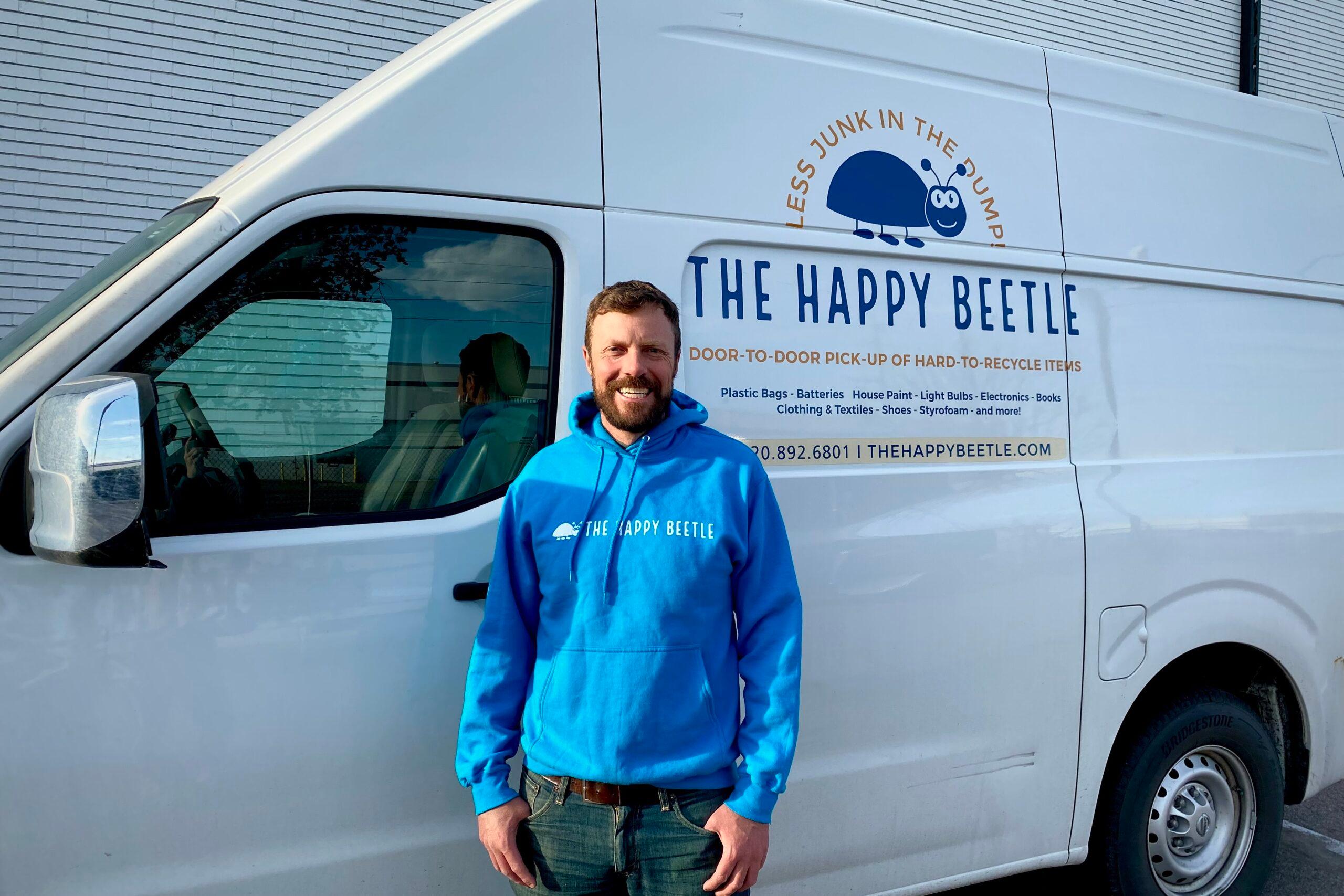
Jess Corvinus, of Denver, may be more conscientious than most about what happens to the trash her household generates every day.
It’s always bothered her that even with city recycling and compost programs, there’s no way to get rid of things like old plastic bags, styrofoam containers, lightbulbs and — perhaps most frustrating — those on-the-go plastic pouches for yogurt and applesauce that her 4-year-old consumes voraciously.
“Those were accumulating really fast,” Corvinus said.
To assuage her guilt and satisfy her need to be environmentally conscious, Corvinus went so far as to research the pouches and found that Terracycle, the company that makes them, has a program where consumers can send the empty ones back to be recycled.
She also found a local venue that partners with Terracycle to provide a drop-off location. Still, that meant Corvinus was spending a good amount of time driving not only to that venue, but also to another to drop off old clothes and yet another to drop off old electronics — to name just a few.
That is, until one day, she saw a post on Facebook about The Happy Beetle, one of a growing number of companies that will pick up hard-to-recycle items and disperse them to be reused as they are or recycled for other purposes. But, you have to be willing to pay, which means the service is out of reach for some.
Corvinus opted for quarterly pick-ups, which cost $89 a year, equating to about $22 every three months. Monthly pick-ups are $142 annually, which equates to about $12 a month. She gets two cloth bags, each about the size of a large trash bag, to fill with hard-to-recycle items. The service also permits subscribers to put out a larger single item on pick-up day.
“So I get one pick-up and they can disperse the items,” she said.
Happy Beetle customers are still expected to use their regular recycling bin for things like cans and bottles and cardboard. And customers can’t just throw everything in their bags. Corvinus keeps a list on her wall of the items the company accepts but, she said, it’s not always clear-cut.
On a recent morning, Corvinus had a chance to meet Happy Beetle truck driver Leslie Butler at her house and quiz her about some of the questionable items. Among them, an empty plastic box used for wipes that Corvinus said her son had added to one of their bags. Butler explained why they’re on the company’s “no” list.
“These tend to have some chemicals on them — any kind of wipes — so the chemicals contaminate the soft plastic,” she said.
Also in Corvinus' bag today: bubble wrap for packaging. Butler said that falls into the “yes” category. The company keeps the bubble wrap in its warehouse so nearby businesses can take it when they need to send packages.
As for other items, The Happy Beetle contracts with businesses that have found some pretty innovative ways to recycle things. For example, those plastic bags from the supermarket that fill up landfills and — along with other marine debris — have formed an island in the Pacific? The Happy Beetle works with one company that turns the bags into outdoor decking. It contracts with another business that takes styrofoam and compresses it to be used again.
The Happy Beetle will find new homes for old clothes and books. Co-founder Dave Kiefner, who worked at the National Renewable Energy Laboratory in Golden before he started the company two years ago, said the staff also works hard to find ways to safely dispose of dangerous materials, like lightbulbs that contain mercury.
But Kiefner admits, finding a home for all his inventory can be a challenge.
“Sometimes we've had to be more creative,” he said. “We’ve reached out to different art studios that do projects with kids and they’ve taken a lot of different random things like keys, wine cork, even chopsticks.”
As for the name The Happy Beetle, founder Kiefner said one night, he was reading a book about insects to his son. One section described how dung beetles use animal waste to create shelter and food. Kiefner said he loves the idea of finding value in what some might consider waste.









